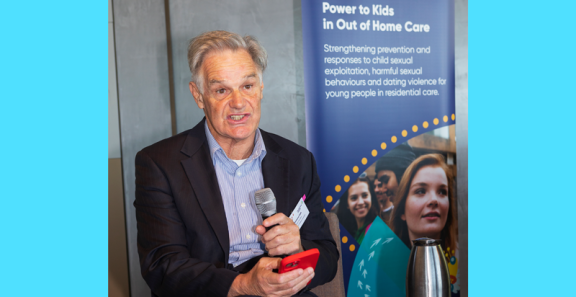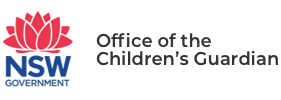Building collaborative responses to child safety
Steve's update: Last week, I participated in the launch of an ambitious project to support the sexual safety of children through expanding ‘Power to Kids’ into school settings.

Deployed first in residential out-of-home care, this innovative, educational model recognised and responded to a stark reality: children in residential care are only 5% of all children in care, but account for 33% of child sexual exploitation reports on children in care in Australia.
It was a pleasure to participate in a panel discussion with experts in child protection from different organisations.
I spoke about the importance of responding when children exhibit problematic or harmful sexual behaviours towards other children. In these circumstances, an organisation must provide protection, support and care for the victim, while still demonstrating care and a constructive response to the young person who has caused harm.
Collaborative prevention methods are also vital, including building knowledge and expectations of respectful relationships at all levels. When harm does occur, there must be strong coordination between the services involved – clinicians, caseworkers, teachers, police and others – to support the rights and needs of all the children involved.
Also participating in the panel were Dr Kavitha Suthanthiraraj, Head of ESG, Human Rights and Social Programs at Westpac, Amanda Morgan, a Yorta Yorta woman, survivor advocate and researcher at the Australian Centre for Child Protection, Detective Superintendent Linda Howlett APM, Commander, Child Abuse Squad, NSW Police, Dr Gemma McKibbin Senior Research Fellow, University of Melbourne and Andy Mison, President of the Australian Secondary Principals’ Association.
The launch was introduced by the Hon Kate Washington MP, Minister for Families and Communities and Minister for Disability Inclusion. Keynote addresses were delivered by Robert Fitzgerald AM, former Commissioner with the Royal Commission into Institutional Responses to Child Sexual Abuse, and Dr Robyn Miller, CEO of MacKillop Family Services.
The Power to Kids program was developed by MacKillop Family Services, a provider of out-of-home care, in partnership with the University of Melbourne.
Last week’s launch saw the expansion of the Power to Kids approach into schools, recognising that sexual safety is an issue for children across our community, with more than 28% of children experiencing sexual abuse.
Among this group of leaders and experts in child protection, a theme that recurred throughout the day was the importance of remaining vigilant and to continuously improve. No system is perfect. Nothing can run on autopilot. Children will always need and deserve our care and support.
In my work as Children’s Guardian in NSW, I see the benefits of building collaborative networks of safety around our children. I’m always encouraged to see evidence-based, harm-prevention measures put into place to support children and young people, building better, stronger organisations in child-related work.
In my time as Children's Guardian, we've established several, successful communities of practice to share effective strategies for keeping children safe. I believe the issues tackled in the Power to Kids program would benefit from this kind of approach.
Find out more about the Power to Kids program
Steve Kinmond OAM
Children's Guardian
